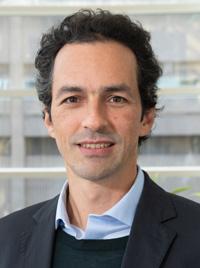
Dr. Ibarra Moreno graduated from medical school in 1998 from the Universidad Central de Venezuela in Caracas. He began working in malignant hyperthermia research as an aspiring PhD in 2002 under the mentorship of the late Prof. Hirosato Kikuchi at the Toho University Department of Anesthesiology (Tokyo, Japan). Dr. Ibarra delved into skeletal muscle physiology, becoming expert the 'skinned fibers' model— a microscopic, single muscle cell-based experimental model for assessing the function of the sarcoplasmic reticulum. This model is used in Japan to diagnose the susceptibility to malignant hyperthermia.
Since then, his research has been focused on finding a non-invasive method to diagnose malignant hyperthermia. He performed the first mutation screening of the entire open-reading frame of the RYR1 gene in a large cohort of unrelated Japanese families with malignant hyperthermia susceptibility, achieving a close estimation of its prevalence based on the occurrence of compound heterozygosity.
Dr. Ibarra interrupted his research from 2006 to 2010 to enter consecrated life in the Society of Jesus, ultimately returning to anesthesia for residency training at Hadassah Medical Center in Jerusalem until 2016. Thereafter he pursued fellowships in Cardiovascular Anesthesia and Malignant Hyperthermia at the Toronto General Hospital, where he remains as a staff anesthesiologist, consultant and independent researcher.




 https://orcid.org/0000-0001-8898-6772
https://orcid.org/0000-0001-8898-6772